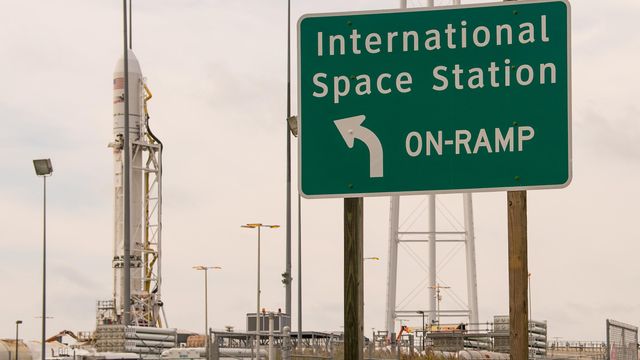Cargo flight takes off for ISS
The Wallops Flight Facility is active again this week as a Cygnus spacecraft bound for the International Space Station (ISS) launched Wednesday morning.
Posted — UpdatedThe Wallops Flight Facility is active again this week as a Cygnus spacecraft bound for the International Space Station (ISS) was placed atop an Antares rock on pad 0A. Cygnus is an unmanned resupply spacecraft designed by Orbital Sciences Corporation of northern Virginia for NASA's Commercial Orbital Transportation Services program. The launch took place Wednesday morning.
Engineers will continue to test the systems aboard Cygnus in the four days following the launch as the spacecraft increases altitude to meet up with the ISS. NASA will provide a "go" on the sixth flight day for Cygnus to approach to within about 40 feet of the station. Astronauts aboard the ISS will then capture the spacecraft with the station's robotic arm and attach it to the Earth-facing side of the Harmony module.
The next 30 days will be spent unpacking 1,543 pounds of cargo, mostly provisions for the crew.
After filling Cygnus with with over a ton of trash, the docking procedure will be reversed. The cargo spacecraft turned dumpster will burn its engines to move away from the station. Cygnus will de-orbit over the Pacific Ocean, burning up on reentry.
The flight path of the Antares takes it southeast, chasing the International Space Station which passed over moments before. Unlike the recent night launch of LADEE from Wallops Flight Facility, this launch is not expected to be visible from central North Carolina. Depending on weather conditions, northern portions of the Outer Banks might spot a small bright point of light in the north moving left to right.
The Cygnus spacecraft launched Wednesday is named for G. David Low, a space shuttle astronaut who spent a total of over 29 days in space aboard three shuttle missions. Low left the astronaut corps in 1996. He returned to his boyhood home for a career with Orbital and died of cancer in 2008.
• Credits
Copyright 2024 by Capitol Broadcasting Company. All rights reserved. This material may not be published, broadcast, rewritten or redistributed.





